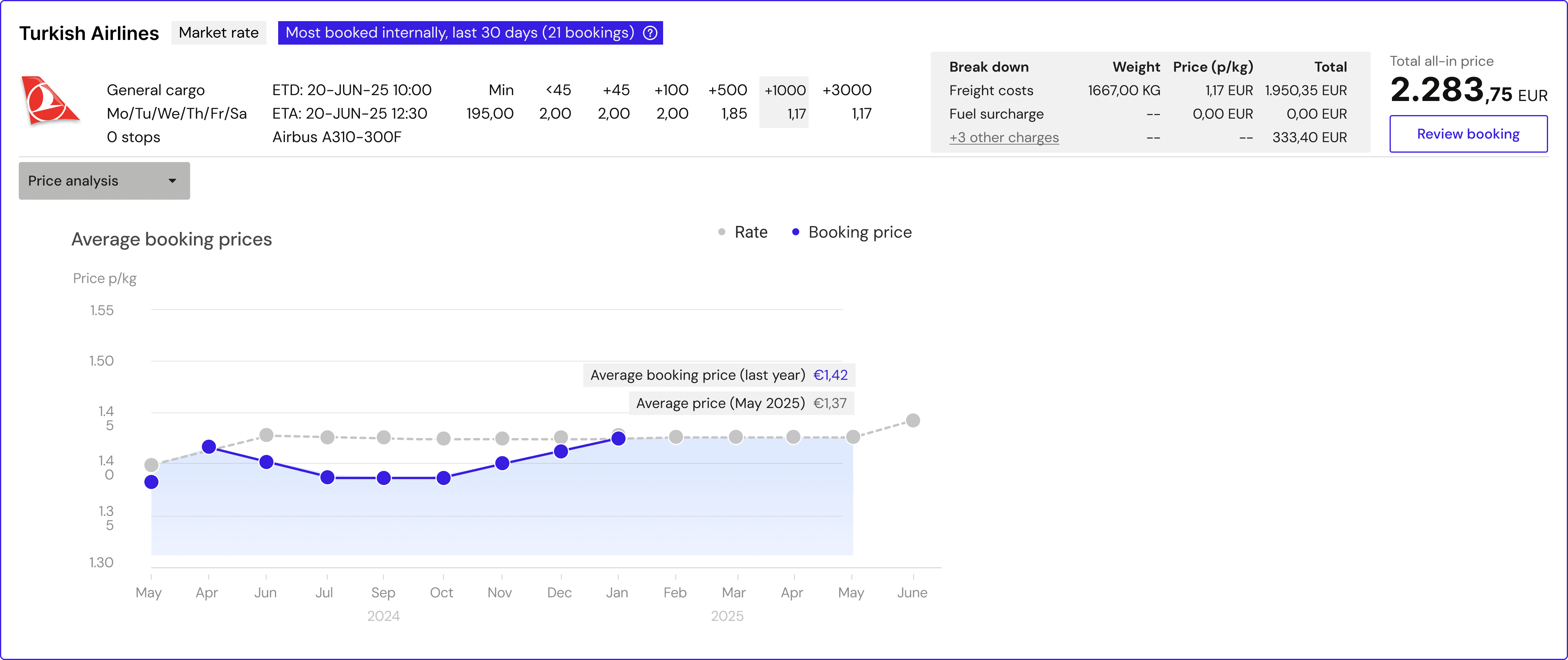Rate finder
Data-driven cost-option comparison tool for freight forwarders.
Design challenge
How can an adaptive interface enhance pricing decision-making efficiency in cost estimation for companies?
1. Doing a search query based on route (A>B) and shipment details
2. Compare cost options of different carriers and associated services
3. Viewing the detailed breakdown of a cost option
4. Review route and product information to decide and book a cost option.
Freight forwarder workflow
Accurate and efficient cost estimation is crucial for strategic planning and informed
decisions, particularly within business sectors such as transportation.
This case study focuses on enhancing the decision-making efficiency of freight forwarders when choosing cost options for B2B shipments
B2B context
Accurate and efficient cost estimation is crucial for strategic planning and informed
decisions, particularly within business sectors such as transportation.
Freight forwarders act as intermediaries responsible for estimating and arranging transportation services to move goods from one location to another
This case study focuses on enhancing the decision-making efficiency of freight forwarders when choosing cost options for B2B shipments
Acquiring flight data
and data collection
Hi-fi prototyping
for validating design decisions
User testing
(ex) freight forwarders
Personal reflection
The project has taught me:
To develop design-oriented feedback collection methods to understand the context of use, obstacles, needs, and pain points of expert users within a niche.
To address design uncertainty—stemming from not being an expert user or lacking domain expertise—by validating business scenarios through user and usability testing.
To gain a deeper understanding of decision-making efficiency for financially oriented business users in a niche domain.
To define decision-making variables for experts through design research methods and design-through-research practices.










